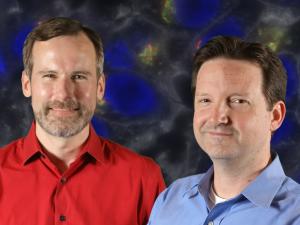Matthew J. Lazzara

About
Work in the Lazzara Lab employs a combination of experimental and computational methods to study problems in cell signaling, the complex biochemical process cells use to make decisions. Current projects focus on the rational (model-driven) identification of combination therapies for brain and pancreas cancers and on fundamental studies of the spatiotemporal regulation of cell signaling by phosphatases and receptor trafficking.
The lab's work is funded by grants from the NIH/National Cancer Institue, American Cancer Society, and National Science Foundation. Dr. Lazzara is the recipient of several teaching awards, including the S. Reid Warren, Jr. Award and the Outstanding Faculty Award of the AIChE Delaware Valley, and is a member of the editorial board of Cellular and Molecular Bioengineering and the Cancer Drug Discovery Peer Review Committee at the American Cancer Society. He also served for more than 10 years on the National Board and Board of Directors of the Museum of Science and Industry in Tampa, FL.
Matthew Lazzara received a B.S. in Chemical Engineering (with highest honors) from the University of Florida and a Ph.D. in Chemical Engineering from the Massachusetts Institute of Technology, where he trained in the lab of William Deen. He remained at MIT for postdoctoral studies in the lab of Douglas Lauffenburger and was the recipient of an NIH Ruth L. Kirschstein National Research Service Award Postdoctoral Fellowship. Dr. Lazzara is Professor of Chemical Engineering and holds a joint appointment in the Department of Biomedical Engineering. He is also a member of the UVA Cancer Center.
Education
B.S. University of Florida, 1997
Ph.D. Massachusetts Institute of Technology, 2003
Post-Doc Massachusetts Institute of Technology, 2003-2007
"Our lab studies the biochemistry of cellular decision-making using a combination of experimental and computational approaches, with the ultimate goal of rationally designing improved therapeutic approaches for cancer and other diseases."
